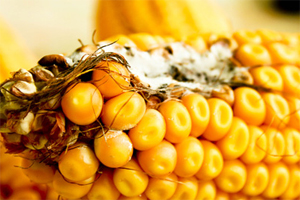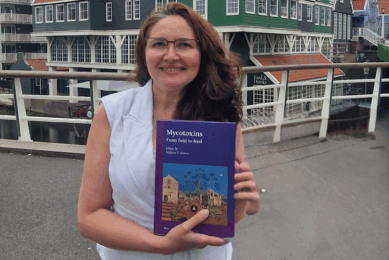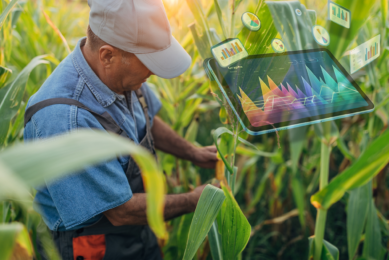Nutriad develops prototype rapid test kit for mycotoxins

Nutriad and Ghent University joined forces on a two year project developing a prototype rapid test kit for mycotoxins. The rapid testing techniques may not require complicated sample pretreatment except for one-step extraction and/or dilution.
Mycotoxins are natural, relatively small secondary metabolites, produced by fungal species e.g. Aspergillus, Penicillium, Fusarium etc., growing on agricultural commodities both in the field and during storage. Mycotoxins cause different biochemical, functional and morphological disorders in organs of humans and animals which can lead to higher morbidity and mortality. Animal exposure to mycotoxins occurs mainly through ingestion of contaminated feed.
It is inevitable that under certain conditions, mycotoxins contamination of various foodstuff is unavoidable. However, its control and prevention directly in the field is an aim of agricultural and food industries. States Erik Visser, CEO Nutriad: “Our technical team is convinced that one of the best practical ways to detect mycotoxins exposure in both raw materials and feed is using the rapid tests.” Various rapid systems for detection of different mycotoxins are commercially available. All of them are suitable for quick and sensitive screening of raw materials before they enter feed mill. Once the mycotoxins levels are evaluated in all ingredients, contamination level of feed mill can be estimated. This allows the precise calculation of mycotoxins’ deactivator or binder needed. Indicates Visser: “Whilst these rapid techniques are characterised with good analytical performances, most of them are specific only for one certain mycotoxin which significantly limits their application.”

Various fungi are able to produce several mycotoxins simultaneously while food and feed can be contaminated by several fungi species at the same time. In addition, blends of various raw materials in compound feed can increase the risk of feed contamination by several toxins. Therefore, humans and animals are generally exposed to not only one but several toxins at the same time.
This indicates that a strong need for the development of multi-detection approaches is required. Sample throughput is an important criterion when a large sample series need to be monitored for multiple toxins since time is of essence. As a rule, these rapid testing techniques may not require complicated sample pretreatment except for one-step extraction and/or dilution.
The results of this work were presented at the 10th conference RME 2015: Food, feed, water analysis (20-22 April, 2015, Noordwijkerhout, the Netherlands) and 37th Mycotoxin Workshop (June 1st-3rd, Bratislava, Slovakia).

Indicated Olga Averkieva, Business Development Manager Nutriad: “The project led to development of the first prototype and we have to search further into the development of functional and very simple rapid test kit system available as the practical tool for the mycotoxin management for customers of our range of mycotoxin deactivators of UNIKE and TOXY-NIL brands.”











